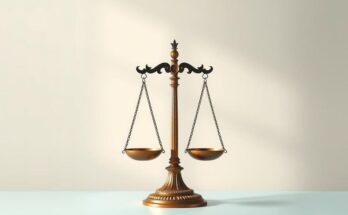On July 16 and 17, 2024, Côte d’Ivoire was scrutinized by the United Nations Committee Against Torture (CAT) for the first time in nearly thirty years since ratifying the convention. Pedan Marthe Coulibaly, the National Coordinator of the Ivorian Coalition of Human Rights Defenders (CIDDH), showcased civil society’s commitment to human rights, emphasizing the significant impact this review will have on women’s rights in her country.
Motivated by witnessing the violations of women’s rights, Coulibaly has dedicated herself to human rights advocacy. As National Coordinator, she highlights that the fight against torture encompasses all forms of violence, physical and moral, directed at defenders of human rights. This commitment stems from her partnership with OMCT, aiming to protect those at the forefront of this struggle.
Despite her passion, Coulibaly acknowledges that challenges abound, particularly financial shortcomings. While advocacy efforts sometimes resonate with government, immediate action is often lacking. Nevertheless, she remains resilient, supported by international partners like OMCT who share her vision for human rights in Côte d’Ivoire.
Cultural pressures also complicate her role as a woman leader in a patriarchal society. Many strong female advocates face scrutiny and are perceived as deviating from traditional norms, labeled negatively for their determination. This often hinders their effectiveness on community levels, thwarting grassroots advocacy efforts.
Human rights defenders, particularly those advocating for LGBTI rights, governance, and women’s issues, face considerable risks. Coulibaly narrates instances where activists have suffered threats, especially for addressing sexual harassment or harmful practices like excision. The need for heightened security measures for these defenders has become increasingly evident to ensure their safety.
As Côte d’Ivoire approaches its 2025 presidential elections, concerns mount over the safety of human rights defenders. A recent ordinance released by the President imposes restrictions on civil society, limiting freedoms of association, expression, and assembly. There is a palpable fear among activists regarding potential crackdowns and organizational dissolutions during electoral unrest.
In June, Coulibaly spearheaded a movement dedicated to women human rights defenders across West Africa. This coalition aims to amplify their voices and protect vulnerable groups in a region plagued by instability and violence. United, this network will bring crucial issues to international attention, enhancing support for those in precarious situations.
Civil society’s role in Côte d’Ivoire is vital, marked by the relentless efforts of organizations striving for human rights improvement. Their initiatives include advocacy, investigations, and education, evidenced by the pivotal 2014 law that emerged from recommendations for protecting human rights defenders. This demonstrates the potential of collective engagement to effect positive change.
Looking ahead, Coulibaly envisions stronger collaboration between government and civil society to bolster human rights. She expresses optimism in the defenders’ protection mechanism inaugurated in March 2022, hoping it gradually includes defenders in decision-making processes. Ultimately, her dream is for a Côte d’Ivoire where human rights principles are honored and respected by all, fostering a culture of dignity and justice.
Côte d’Ivoire was assessed by the UN Committee Against Torture, highlighting the essential role of human rights defenders like Pedan Marthe Coulibaly. She advocates for women’s rights amidst significant cultural and financial challenges. Recent ordinances threaten civil society freedoms, especially as elections approach. Coulibaly launched a movement for women defenders in West Africa, emphasizing collaboration to enhance visibility and support on international platforms. The future hinges on strengthened ties between authorities and civil society for effective human rights advocacy.
Pedan Marthe Coulibaly’s insight reflects the ongoing struggle for human rights in Côte d’Ivoire, particularly for women. Through steadfast commitment and collaboration with international partners, the fight against violations continues. However, existing cultural barriers and governmental restrictions present significant challenges. The future holds promise for strengthened networks and advocacy efforts that can reshape the human rights landscape for the better.
Original Source: www.omct.org



